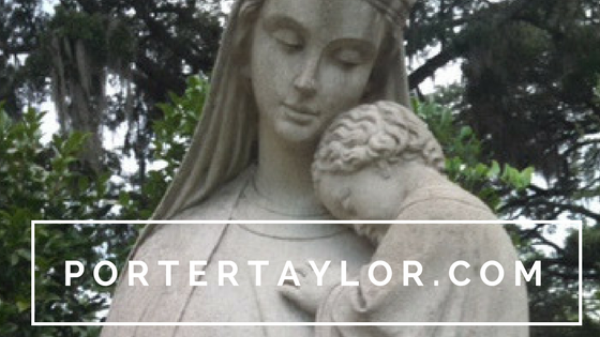Finding The Story
My focus has been on narrative since I was a Junior in high school. I remember sitting in Ms. Julia Capps’ English class thinking about football practice and where my girl friend and I might go Saturday night when Ms. Capps began reading the first lines of a poem by John Keats (whom I had never heard of):
“A thing of beauty is a joy for ever;/ Its loveliness increases; it will never/ Pass into nothingness; but still will keep/ A bower quiet for us, and a sleep/ Full of sweet dreams….”
It was like going through the wardrobe door into Narnia. There was this other realm of story and beauty that had a wholeness to it and served as a place from which I could look back on my life. Before then I thought the only novels to read (this is true) were by Mickey Spillane, but I discovered that The Great Gatsby actually had more to say than Kiss Me Deadly. Who knew?
My sense of narrative has recently gone beyond aesthetic appreciation. I believe it’s crucial for community and in our country today perhaps it’s necessary for our future. Civilizations depend upon a common narrative. It’s what binds us together. For Jew the narrative is the Exodus story and for Christians it’s the resurrection. As we say in the Eucharist: “We proclaim the mystery of faith: Christ has died. Christ is risen. Christ will come again.” This is our primal story that informs who we are and what we do.
In March I wrote about an editorial by David Brooks (“The Four American Narratives”). I want to revisit it because more and more it makes sense of what’s going on in our country and what we as Christians have to offer. Brooks cites a speech by George Packer asserting that there are four competing narratives in the United States that shape people’s world views. The problem is that they are mutually exclusive. Packer labels them as the libertarian (everyone is responsible for their own fate); the globalized America (the future of the world depends on innovation and flattening hierarchies); the story of multicultural America (while recognizing the various cultures in the USA, it tends to focus on one’s own group); and America First (America has lost her traditional identity by being globalized). However, each is dedicated on proving that the other three are wrong.
Brooks’ main point and my main point is that without some coherent overarching story, community is impossible. We have to find a way to go to a deeper story that connects us as human beings made in the image of God. Otherwise we will stay in our little silos which is death for any cohesive society. The great paradox of our time is that as information has increased, our sense of belonging has decreased. We know more about other people but our sense of allegiance has gotten smaller.
This is why I am become so focused on story. (Yes, I am doing a workshop at Montreat Conference Center August 11-13. Email Catherine Powell, cathie@theanchorage.org if you are interested.) It’s not just that I love novels. It’s that without story, there’s no community and no communion. We have to tell our stories and connect them to others’ stories and to God’s never-ending story in order to make sense of where we are and where we are going. It’s a primary way to respond to the call of Amos “to repair the breech.” We don’t bridge the divide by simply telling our story louder. We listen to the other and tell our story deeper until we discover the one story that connects us all.
Porter
